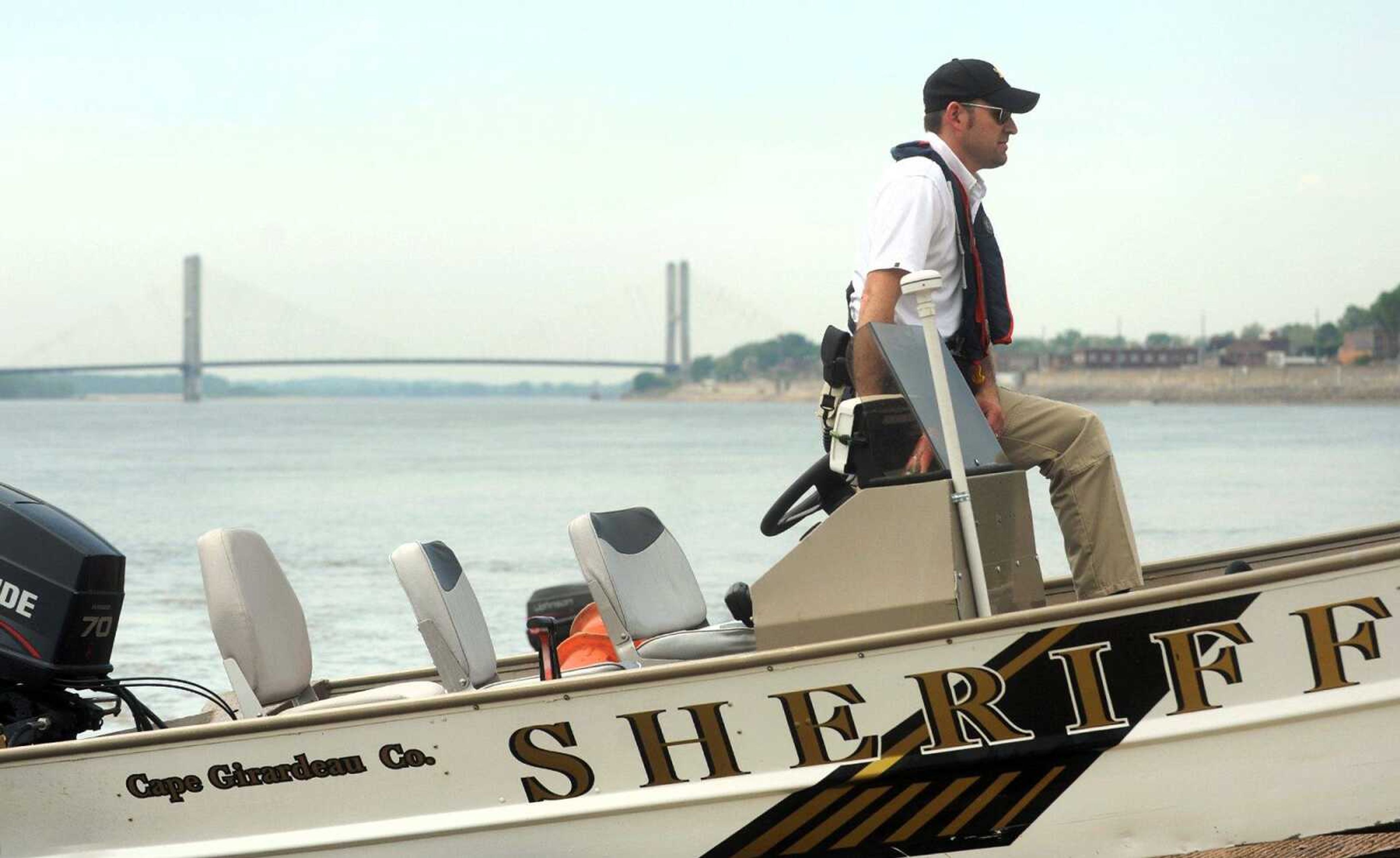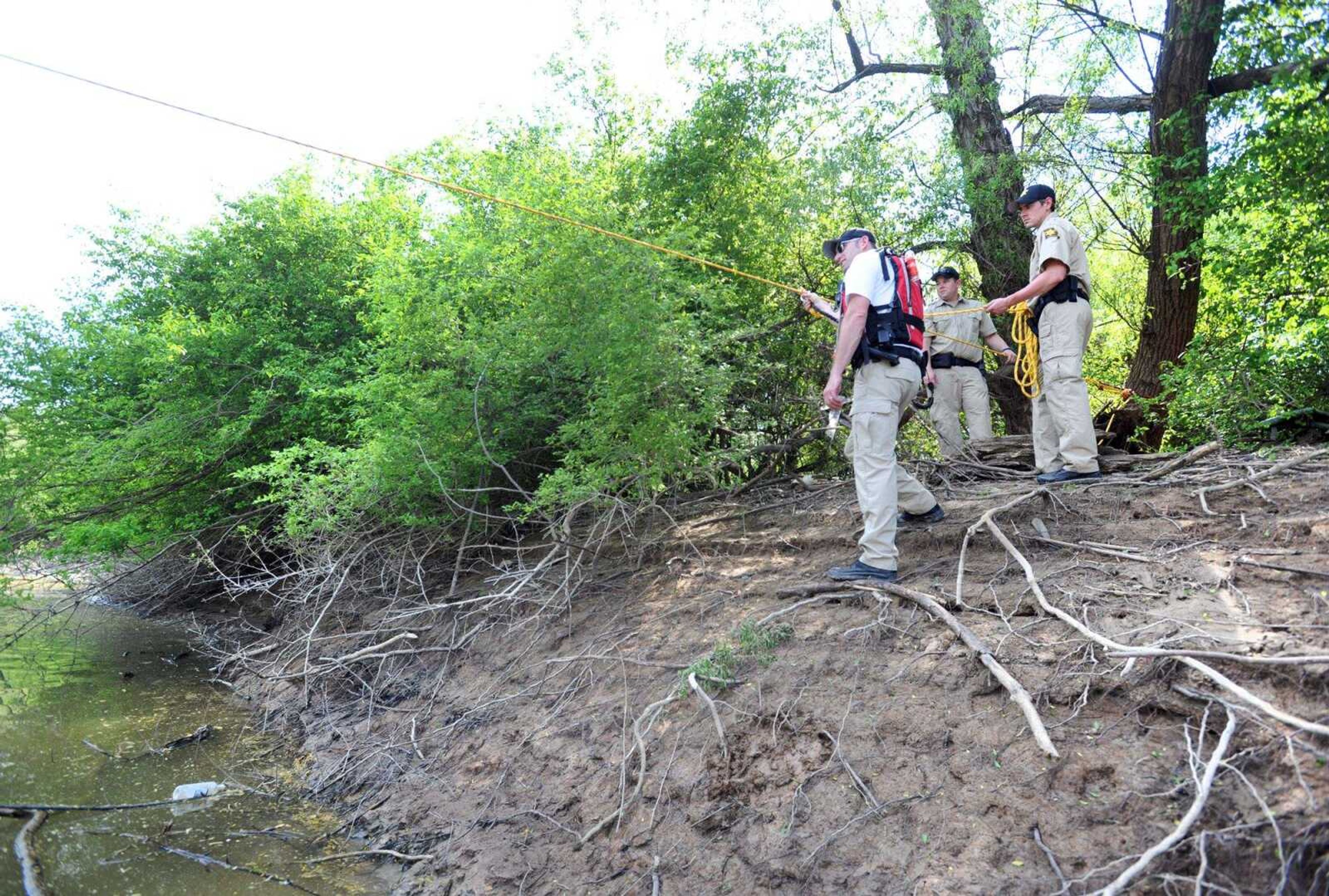Deputies get practice time with water rescues
See a lot of sheriff's deputies out on the water? Don't assume someone's in trouble. Lt. R.C. Hull of the Cape Girardeau County Sheriff's Department said though they do swift-water training, such as what they were doing Monday, about once a month, an actual rescue is required only once or twice a year...
See a lot of sheriff's deputies out on the water? Don't assume someone's in trouble.
Lt. R.C. Hull of the Cape Girardeau County Sheriff's Department said though they do swift-water training, such as what they were doing Monday, about once a month, an actual rescue is required only once or twice a year.
Hull said they go out often to give new officers a chance to get the experience, and more agencies prepare for water rescue than they did.
"It's gotten more prevalent since all the flooding a few years ago," Hull said.
He said the Missouri State Highway Patrol, Water Patrol and Cape Girardeau Fire Department also train for water rescues, which means investigations can get underway faster. "We don't have to wait two or three days for the Water Patrol dive team to get here," Hull said.

Part of the training Monday involved tying a line on opposite banks of the Diversion Channel. Hull said that technique is used in rising-water situations, such as when a person is trapped on top of a car, to give rescuers a "mechanical advantage." The line is tied with no slack, then used with the current to guide people, boats or equipment to safety.
Hull said larger bodies of water, such as the Mississippi River, would require a boat operation.
In those cases, "usually we're looking for somebody who's drowned," he said.
The main safety advice Hull offered those spending time on the water: Use a life jacket.
"It doesn't matter how good a swimmer you are," he said.
kwebster@semissourian.com
388-3646
Pertinent address:
Diversion Channel, Cape Girardeau County, MO
Connect with the Southeast Missourian Newsroom:
For corrections to this story or other insights for the editor, click here. To submit a letter to the editor, click here. To learn about the Southeast Missourian’s AI Policy, click here.










